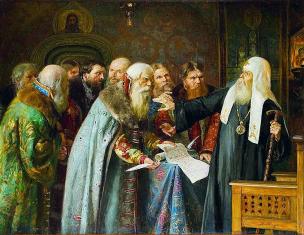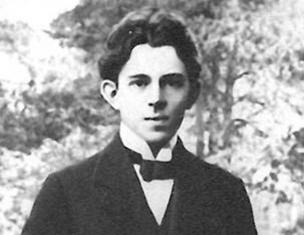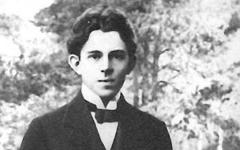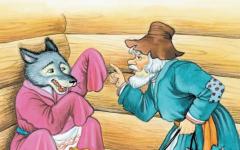My best friend's name is Andrew. He is fifteen years old. Andrew is my classmate. We also do judo together. Andrew is a really good friend. What I like about him is that he is sincere with his friends. He is very helpful and his friends can always rely on him. I think he is a loyal friend to me.
Andrew is an optimistic person. He is well-balanced and quite reserved. He always keeps calm in critical situations. Andrew is quite sensible and practical. He is very responsible.
Andrew is purposeful and assertive. He always expresses his ideas and opinion with confidence. He does well at school, because he is studious and works really hard. My friend is also very intelligent and resourceful. Andrew is good at Math, Physics and Chemistry.
Andrew is a sociable person. He has a good sense of humor and a great imagination. We always have a lot of fun together. To my mind Andrew is a wise person: he often gives me good advice.
Although Andrew and I are good friends, we sometimes argue fiercely about different things. And Andrew can often be really stubborn. Sometimes he is also too self-confident and bossy.
My best friend's name is Andrey. He is fifteen years old. Andrey is my classmate. We also go to judo together. Andrey is a very good friend. What I like about him is that he is sincere with his friends. He is very responsive and his friends can always rely on him. I think he is a true friend.
Andrey is an optimistic person. He is balanced and quite reserved. He always remains calm in critical situations. Andrey is quite reasonable and practical. He is very responsible.
Andrey is purposeful and persistent. He always confidently expresses his thoughts and opinions. He does well in school because he is studious and studies very hard. My friend is also very smart and resourceful. Andrey is well versed in mathematics, physics and chemistry.
Andrey is a sociable person. He has a good sense of humor and a rich imagination. We always have fun together. In my opinion, Andrey - wise man: He often gives me good advice.
Although Andrey and I good friends, we sometimes argue heatedly about different things. Andrey can often be very stubborn. Sometimes he is also overconfident and likes to boss others around.
Describing a person is one of the first topics covered at the very beginning of learning English. In almost every conversation there is a need to express one’s opinion about a particular acquaintance, and it is often difficult to choose precise definition. This article was written precisely to avoid such problems. Here is a collection of the most commonly used vocabulary to describe character in English with translation. The information provided here will help increase vocabulary so that in the future you can freely express your opinion about this or that person.
It should be noted that any description mainly uses adjectives. Therefore, we will focus our attention on this part of the speech. This topic can be divided into two parts: description of appearance and character in English.
Description of human physique
Here the main parameters are height, body type, as well as appearance (facial features, silhouette, etc.). So, when describing a person’s appearance, we first of all pay attention to how he is built, how tall he is, and also what kind of hair and eyes he has.
In order to describe a person's height, adjectives such as tall (tall), of medium/average height (of average height), short (short, small) will be used. In this case, the sentence will be constructed according to the following type: He/she is tall/short/of medium height (He/she is tall/low/of medium height).
To describe body type in English, the following vocabulary is used: thin (thin), skinny (skinny), slender (slender), fat (thick), chubby (plump, full), overweight (overweight), underweight (underweight) , well-built (well-built), muscular (muscular), in a good shape (in good shape). Also useful words can be shape (figure), weight (weight).
For example, My brother is very muscular. He works out every day (My brother is very muscular. He trains every day).
How to describe a face in English?
When describing a face, the main attention is paid to the eyes and hair. Adjectives are also mainly used here. Eyes can be dark, bright, blue, green, brown, black, narrow, big, gray (gray), small (small), expressive (expressive).
The following words are used to describe hair: long, short, curly, straight, bald, thick, thin, gray, dark (dark), fair (light), blond (blond), brown (brown, chestnut), black (black), golden (golden).
Also, the face can be described with the following words: pale (pale), tanned (tanned), soft (soft - about the skin), swarthy (swarthy), wrinkled (wrinkled), freckled (freckled), ruddy (ruddy).
Let's give an example of using this vocabulary. His face is freckled. He has big green eyes and curly hair. - His face is covered in freckles. He has green eyes and curly hair.

This subsection is more complex, because character can be described from several sides. At the same time, there is an evaluative moment here. That's why this topic can also be divided into several: positive and negative character traits, feelings and emotions.
Let's start with neutral words: extrovert (extrovert), introvert (introvert), optimist (optimist), pessimist (pessimist), active (active), passive (passive), retiring ( loneliness lover), social (social, sociable).

Positive character traits
In order to describe a person on the good side, the following adjectives will be used:
- attractive - attractive;
- calm - calm;
- clever - smart;
- intelligent - intelligent;
- bold - brave, decisive;
- kind - kind;
- cheerful - cheerful;
- generous - generous;
- faithful - faithful;
- fair - fair;
- funny - funny;
- polite - polite;
- honest - honest;
- loyal - devoted;
- reliable - reliable.

This list is far from complete in English. It contains the most commonly used adjectives. So, you can create the following character description in English, using the above vocabulary: My friend's name is Lena. She is a very nice girl. For example, she is very polite. She never uses rude words while talking to someone. (My friend name is Lena. She is a very nice girl. For example, she is very polite. She never uses rude words in conversation).
Negative character traits
Character descriptions in English may also include underlining negative qualities person. Such vocabulary can be reduced to the following list:
- arrogant - arrogant;
- bossy - domineering, loving to command people;
- boastful - boastful;
- rude - rough;
- cruel - cruel;
- bad - bad;
- lazy - lazy;
- evil - evil;
- silly - stupid;
- spoiled - spoiled, spoiled;
- greedy - greedy;
- selfish - selfish;
- sly - cunning.
Using these words, you can create the following description: Tom is a really bad person. Apart from being impatient and rude, he is also very selfish. He cares only about himself (Tom - very bad person. Besides being impatient and rude, he is also a real egoist. He only cares about himself).
Description of feelings and emotions
In addition to character traits, when describing a person, it is often necessary to talk about his well-being and emotions. In this regard, the vocabulary of the English language is also very diverse. However, it is impossible to remember everything at once. Therefore, first you need to learn the most common definitions.
So, in order to describe positive feelings and emotions, you can use the following english words: happy, excited, joyful, delightful, cheerful, contented, glad, high-spirited, dreamy ), satisfied (satisfied).
For example, Tomorrow I am going to Paris. I am very excited about the trip. - Tomorrow I'm going to Paris. I'm very excited about the upcoming trip.

In turn, the following vocabulary is used to describe a negative mood and feeling: angry, sad, worried, bored, tired, exhausted, frightened , sorrowful (sorrowful), stressed (in a stressful state), upset (upset), gloomy (gloomy), low-spirited (in a bad mood).
So, for example, you can write the following description: Today I am feeling bad. I received bad news yesterday so I am very upset. - Today I feel bad. Yesterday I received bad news and that's why I'm very upset.
Thus, the vocabulary for describing appearance and character in English is very diverse. Only the most common and most frequently occurring words were given in the article. However, for a more complete and detailed description of a person, it is necessary to use other adjectives. For this, reading fiction books (or excerpts thereof) in English can be very useful.
I have both weak and strong points in my character. I am certainly a bit ashamed of my weak points and I do my best to get rid of them. As for my strong features of character, I value and cherish them.
Everyone tells me that I take after my dad as I’m a good listener and very sociable. I am a complete extravert. I love people and the world around me. I understand them and make friends quite easily. Being open and communicative means broadening my mind and my views on the world. That’s why I like meeting new people and talking to them. I always try to be an open-minded and adaptable guy because our world is constantly changing.
One of my best traits is that I try to feel as happy and cheerful as I can most of the time. My friends often call me the life and soul of the party, with a good sense of humor, although I may sometimes be kind of shy. Anyone can be down or depressed when something sad happens. But if somebody hurts my feelings or makes me angry I just tend to ignore him or her and approach the things from the positive side. I really dislike rude and ignore people but I rarely lose my temper because of them.
I would also describe my personality as generous. I take pleasure in sharing something with other people and I am ready to help them at any time. I am organized and punctual too and I am happy when things happen on time, according to the schedule. I am very hard-working and I am always busy. I don't like to give up.
I’d say that my negative and the least appealing qualities are obstinacy and perfectionism. Sometimes I set too high standards when it comes to choosing something. I am often a hard person to please. I’m afraid my choosy character makes me lose some nice opportunities in my life.
In conclusion I would like to say that my personality qualities are both inherent and acquired. When I think of myself I often get confused about how differently I see myself. I am constantly trying to improve myself as a person.
Translation
My character has both weak and strong qualities. Of course, I am a little ashamed of my weaknesses, and I do everything in my power to get rid of them. As for my strong qualities character, I appreciate and value them.
Everyone tells me that I am like my father because I am a good listener and very sociable. I'm a real extrovert. I love people and the world around me. I understand them and make friends easily. Being open and sociable means expanding your horizons and views on the world. That's why I like to meet new people and talk to them. I always try to be an open-minded and adaptable guy as our world is constantly changing.
One of my best qualities is that I try to feel as happy as possible most of the time. Friends often call me the life of the party, with a good sense of humor, although sometimes I can be a little shy. Anyone can become upset or depressed when something sad happens. But if someone hurts my feelings or makes me angry, I just tend to ignore him or her and take things in stride. positive side. I really don't like rude and ignorant people, but I rarely lose my temper because of them.
I would also describe myself as a generous person. I enjoy sharing things with others and am ready to help at any moment. In addition, I am organized and punctual, and I am happy when things happen on time and according to schedule. I am very hardworking and always busy. I don't like to give up.
I would say my negative and least attractive qualities are stubbornness and perfectionism. Sometimes I set the bar too high when it comes to making choices. I am often difficult to please. I'm afraid that my selective nature is allowing me to miss out on some good opportunities in my life.
In conclusion, I would like to say that my personal qualities are both hereditary and acquired. When I think about myself, I'm often confused by how differently I see myself. I'm constantly trying to improve as a person.
Hello! Very often, when we are asked to describe ourselves or another person in English, we limit ourselves to a verbal depiction of appearance. Meanwhile, a person is a versatile personality, with his own character traits and other characterizing features. Without using these words, you cannot tell anything about a person as an individual.
 Describing a person in English
Describing a person in English In the vast majority of cases, in order to talk about a person, we use characterizing adjectives. In this article, I tried to collect the most popular adjectives that can be used to describe a man or girl as an individual. For this purpose, you can use words that are part of the following categories:
- Character Traits:
- Personality traits
- Mental abilities
- Strong-willed qualities
- Attitude towards other people, towards property, towards work
 Dictionary for describing appearance in English
Dictionary for describing appearance in English  Adjectives characterizing a person in English
Adjectives characterizing a person in English When talking about appearance, we describe height, age, voice, clothing. For example, growth can be high ( tall), short ( short) or average ( medium), and age - elderly or old ( old), middle aged ( middle-aged) and young ( young). Speaking about the voice, you can indicate that it is hoarse (cracked), voiced ( crisp) or melodic ( tuneful).
A smile can be charming ( engaging), charming ( charming) and sincere ( sincere) or vice versa, cunning ( cunning), played out ( forced) and insincere ( artificial). You also need to express own opinion about what a person looks like using the following adjectives:
- winsome - attractive
- agreeable - pleasant
- stylish - fashionable
- dapper - neat (only about men),
- lovely-looking - delightful
- awkward - clumsy
- untidy-looking - sloppy
Adjectives about character traits
Describing a personality in English involves talking about character traits, habits and preferences. Sides of character can be both positive (intelligent, optimistic, extroverted) and negative (stupid, pessimistic, introverted). And sometimes the same feature, depending on intonation and context, can be both positive and negative (determined, thrifty, obstinate).
When characterizing an individual, do not forget to clarify why you call him that. For example, when you say that a girl is hardworking, explain why you think so:
Any is very hard-working. It can work all day without any break at all. I really admire the way it studies and works. (Annie is a very hard worker. She can work all day without a break. I actually admire the way she studies and works).
Table of characterizing adjectives
The criteria that make up a person’s character are also varied. For ease of memorization and pronunciation, I have placed them in a compact table with translation and transcription. This will make it easier for you to navigate the criteria and remember the characterizing adjectives.
Word | Translation | Transcription |
Personality traits |
||
| arrogant | arrogant | ["ærəgənt] |
| irritable | irritable | ["irit(ə)bl] |
| self-confident | self-confident | [self-"kɔnfidənt] |
| persistent | persistent | [ pə "sist (ə)nt ] |
| curious | curious | ["kjuəriəs] |
| modest | modest | ["mɔdist] |
| capable | bright | [brait] |
| brave | brave | [breiv] |
| creative | creative | [kri:"eitiv] |
| restrained | reserved | [ri'zə:vd] |
| observant | observant | [əb"zə:vənt] |
| enterprising | enterprising | ["entəpraiziŋ] |
| cunning | cunning | ["kʌniŋ] |
| stubborn | obstinate | ["ɔbstinit] |
| purposeful | purposeful | ["pə:pəsful] |
| boastful | boastful | ["bəustful] |
| incorruptible | incorruptible | [ ‚ɪnkə"rʌptəbəl ] |
| hot-tempered | hot-tempered | [‚hɒt"tempərd] |
| resourceful | quick witted | [kwik witɪd] |
Mental abilities |
||
| broad-minded | broad-minded | ["brɔ:d‚maɪndɪd] |
| smart | bright | |
| smart | clever | ["klevər] |
| wise | wise | [ˈwaɪz] |
| silly | foolish | ["fu:lɪʃ] |
| witty | witty | ["wɪtɪ] |
| unsophisticated | blunt | [blʌnt] |
| well-read | well-read | |
| uneducated | uneducated | [ˈʌnˈedjukeɪtɪd] |
| ignoramus | ignoramus | [ˌɪɡnəˈreɪməs] |
| polymath | erudite | [ˈerədīt] |
| illiterate | illiterate | [ɪ"lɪtərɪt] |
| mediocre | mediocre | [‚mi:di:"əʋkər] |
| ordinary | ordinary | [ˈɔ:dnrɪ] |
Strong-willed qualities |
||
| brave | bold | |
| brave | brave | |
| cowardly | coward | ["kaʋərd] |
| decisive | resolve | ["rezə‚lu:t] |
| indecisive | irresolute | [ɪ"rezə‚lu:t] |
| courageous | courageous | [kəʹreıdʒəs] |
| persistent | stubborn | ["stʌbərn] |
| shy | timid | ["tɪmɪd] |
| flexible | flexible | ["fleksəbəl] |
| timid | fearful | [ˈfɪəful] |
| stubborn | obstinate | ["ɒbstənɪt] |
| unshakable | steady | ["stedɪ] |
Attitude towards other people |
||
| communicative | sociable | ["səuʃəbl] |
| selfish | selfish | ["selfiʃ] |
| friendly | friendly | ["friends] |
| decent | decent | ["di:s(ə)nt] |
| impudent | impudent | ["ɪmpjədənt] |
| honest | honest | ["ɔnist] |
| tolerant | tolerant | ["tɔlərənt] |
| respectful | respectful | [ris'pektful] |
| loyal | faithful | ["feiθful] |
| hospitable | hospitable | ["hɔspitəbl] |
| aloof | detached | [dɪtætʃt] |
| unreliable | disloyal | [dɪslɔɪəl] |
| sincere | frank | |
| fair | just | |
| false | false | |
| indifferent | indifferent | [ɪn"dɪfərənt] |
| truthful | truthful | ["tru:Ɵfəl] |
| insidious | treacherous | ["tretʃərəs] |
| rude | harsh | |
| sensitive, gentle | tender | ["tendər] |
| strict | strict | |
| good-natured | good-natured | [ˈɡudˈ "neɪtʃərəd] |
| demanding | exacting | [ɪg"zæktɪŋ] |
| noble | noble | ["nəʋbəl] |
| altruistic | altruistic | [ˏæltruˊɪstɪk] |
| selfless | selfless | [self les] |
| highly moral | moral | ["mɔ:rəl] |
| sneaky | scoundrel | [ˈskaundrəl] |
| tactful | tactful | [tæktfʊl] |
Attitude to property |
||
| greedy | greedy | ["gri:di] |
| generous | generous | [ˈdʒenərəs] |
| stingy | stingy | ["stɪŋɪ] |
| economical | frugal | ["fru:gəl] |
| thrifty | thrifty | [ˈθrɪftɪ] |
| wasteful | wasteful | ["weɪstfəl] |
Attitude to work | ||








